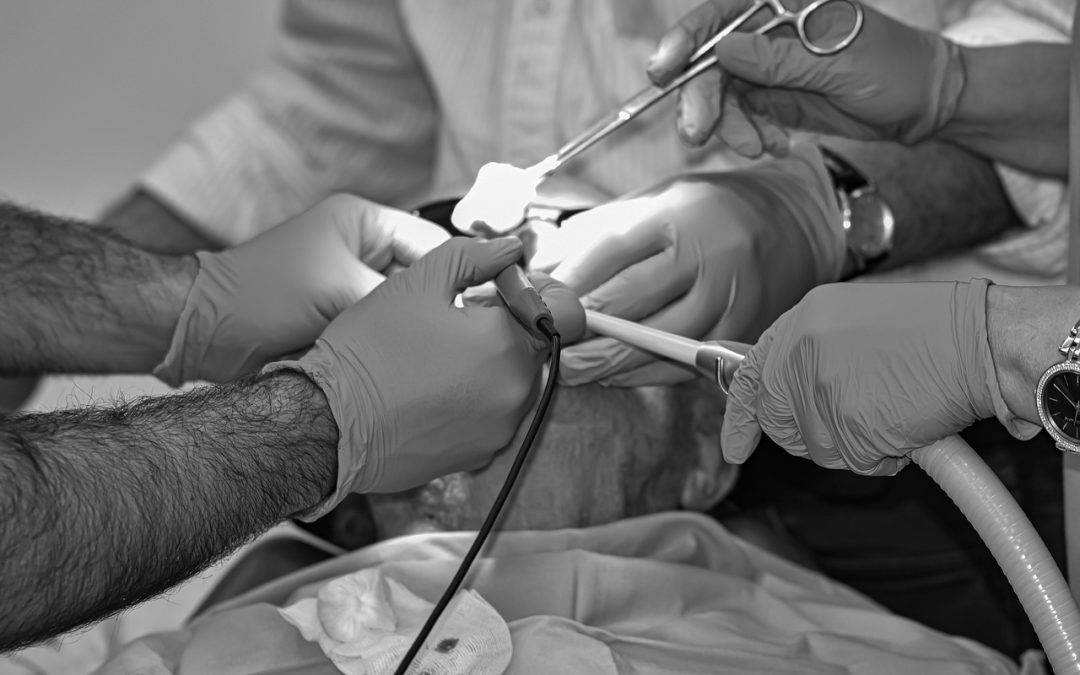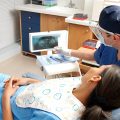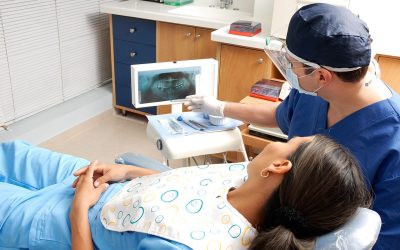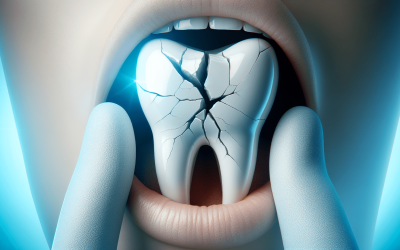So you find yourself in need of emergency dental services in Flowing Wells, AZ. Well, you’re in luck because Emergency Dental Flowing Wells AZ is here to save the day! Whether you’re experiencing excruciating tooth pain, a dental emergency, or simply need a quick check-up, this dental clinic has got you covered. With their team of highly skilled and compassionate dentists, you can rest assured that your dental needs will be taken care of promptly and efficiently. Don’t let dental issues ruin your day – trust Emergency Dental Flowing Wells AZ to keep your smile healthy and bright!
Visit Emergency Dentist of Tucson
Overview of Emergency Dental Services
Definition of Emergency Dental Services
Emergency dental services refer to the dental care provided in urgent situations when immediate attention is required to address a dental problem. These services are specifically designed to provide prompt relief and treatment for individuals who are experiencing severe pain, trauma, or other dental emergencies. Unlike routine dental care, emergency dental services focus on providing immediate assistance to alleviate discomfort, prevent further damage, and ensure the overall oral health and well-being of the patient.
Importance of Emergency Dental Services
Emergency dental services play a crucial role in maintaining oral health and preventing potential complications. Dental emergencies, such as severe toothaches, broken teeth, or knocked-out teeth, can occur unexpectedly and require immediate attention to prevent further damage or infection. Neglecting or delaying treatment for dental emergencies can lead to increased pain, infection, and even tooth loss. The availability of emergency dental services ensures that individuals in need can receive timely and appropriate treatment, preventing the escalation of dental problems and enabling them to regain comfort and functionality.
Benefits of Emergency Dental Services
There are several key benefits associated with emergency dental services. Firstly, these services provide relief from acute dental pain, eliminating discomfort and enabling individuals to carry on with their daily activities. Emergency dental care also prevents the worsening of dental conditions, which could lead to more extensive treatments or even tooth loss if left untreated. Additionally, emergency dentists possess the necessary expertise and specialized equipment to provide immediate and efficient treatment for dental emergencies. By seeking emergency dental care, individuals can receive prompt attention and personalized treatment, leading to faster recovery and improved oral health outcomes.
Common Dental Emergencies
Toothaches and Dental Pain
Toothaches and dental pain are among the most common dental emergencies experienced by individuals. Toothaches can be caused by various factors, including tooth decay, gum infection, dental abscesses, or tooth fractures. The pain associated with toothaches can range from mild discomfort to excruciating agony, making it necessary to seek emergency dental care. An emergency dentist can examine the affected tooth, identify the underlying cause of the pain, and provide appropriate treatment to relieve the discomfort and address the root cause.
Broken or Chipped Teeth
Broken or chipped teeth can occur due to accidents, falls, or biting down on hard objects. When a tooth is broken or chipped, it not only affects the aesthetics but also compromises the structural integrity of the tooth. This leaves it susceptible to further damage or infection. Seeking emergency dental treatment is crucial in the case of broken or chipped teeth to prevent complications and ensure proper restoration. Depending on the severity of the damage, an emergency dentist may employ techniques such as dental bonding, veneers, or dental crowns to repair the tooth and restore its functionality.
Knocked-Out Teeth
One of the most alarming dental emergencies is having a tooth knocked out due to trauma or injury. The immediate actions taken in such situations greatly influence the chances of successfully re-implanting the tooth. If a tooth is knocked out, it is essential to handle it carefully, avoiding touching the root, and gently rinsing it with water or milk if necessary. Transporting the tooth in a container of milk or saliva can help to preserve it until emergency dental treatment is sought. The sooner an individual visits an emergency dentist, the higher the chances of the tooth being saved and reinserted.
Loose or Lost Dental Fillings
Dental fillings, intended to restore damaged teeth, can become loose over time or even fall out completely. This can lead to tooth sensitivity, discomfort, and an increased risk of decay or further damage. When a dental filling becomes loose or falls out, seeking emergency dental care is essential to prevent debris or bacteria from entering the affected tooth and causing infection. An emergency dentist can assess the situation, clean the affected area, and provide immediate treatment by either replacing the filling or utilizing alternative restorative options.
Dental Abscesses
Dental abscesses are painful infections that occur around the tooth root or in the space between the teeth and gums. These abscesses are often caused by untreated tooth decay, gum disease, or dental trauma. The symptoms of a dental abscess include severe toothache, swollen gums, sensitivity, and sometimes fever. Immediate treatment from an emergency dentist is necessary to alleviate pain, drain the abscess, and prevent the spread of infection to other parts of the body. Timely intervention can save the affected tooth and promote effective healing.
Soft Tissue Injuries in the Mouth
Soft tissue injuries in the mouth can result from accidents, sports-related injuries, or accidental bites. These injuries can cause bleeding, lacerations, or tears in the gums, lips, cheeks, or tongue. While soft tissue injuries may appear minor, they can bleed profusely and be quite painful. Seeking emergency dental treatment is crucial in such cases to ensure proper cleaning, disinfection, and suturing if necessary. Prompt treatment not only facilitates appropriate healing but also minimizes the risk of infection and promotes comfort for the patient.
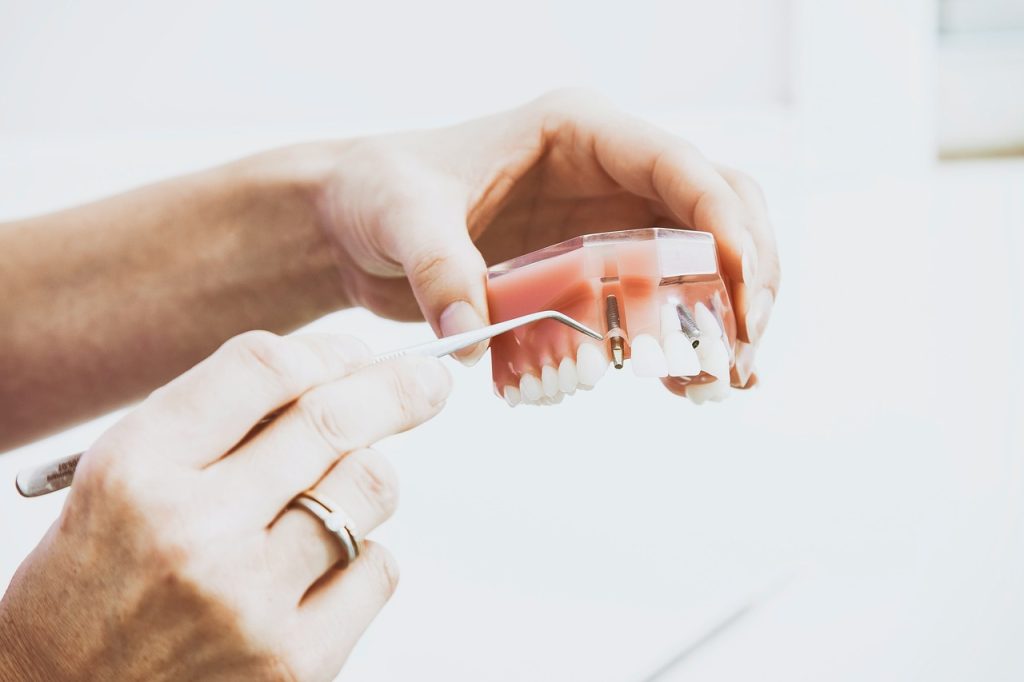
Dental Implants Specialist in Tucson AZ
Finding an Emergency Dentist in Flowing Wells AZ
Researching Local Emergency Dentists
When in need of emergency dental care in Flowing Wells AZ, it is essential to research and identify local emergency dentists. Begin by gathering a list of emergency dental clinics or practitioners in the area. Consider using online directories, dental association websites, or seeking recommendations from friends, family, or general dentists. Look for emergency dentists who are conveniently located and accessible during emergency situations.
Checking for Availability of Emergency Dental Services
After identifying potential emergency dentists, verify their availability for emergency dental services. Emergencies can happen at any time, so you want to ensure that the dentist you choose can provide prompt assistance when needed. Look for dentists who offer extended hours, weekend availability, and emergency contact information that can be accessed outside regular office hours.
Evaluating Dentist’s Qualifications and Experience
The qualifications and experience of an emergency dentist are crucial factors to consider. Look for dentists who are licensed and have completed extensive training in emergency dental care. This demonstrates their expertise in handling various dental emergencies and their ability to deliver appropriate treatment. Additionally, consider the dentist’s experience in the field, as experience often translates into better outcomes and a higher level of patient satisfaction.
Reading Patient Reviews and Testimonials
Patient reviews and testimonials offer valuable insights into the quality of care provided by an emergency dentist. Look for reputable review websites or check the dentist’s website for testimonials from previous patients. Pay attention to feedback regarding the dentist’s professionalism, compassion, and effectiveness in handling emergencies. Positive reviews and testimonials can provide reassurance and help in making an informed decision.
Considering Insurance Coverage and Payment Options
Before finalizing your choice of an emergency dentist, consider your insurance coverage and the payment options available. Confirm whether the emergency dentist is a preferred provider under your dental insurance plan or if they accept your insurance. This will help avoid unexpected costs and ensure that you can utilize your insurance benefits. Additionally, inquire about the accepted payment methods and any available financing options to accommodate your financial needs.
Steps to Take During a Dental Emergency
Assessing the Severity of the Situation
When facing a dental emergency, it is essential to assess the severity of the situation. Determine the level of pain and discomfort you are experiencing, the extent of any visible damage or bleeding, and whether it is affecting your ability to carry out daily activities. Assessing the severity helps you prioritize seeking emergency dental care and provides important information to share with the dentist when contacting them.
Managing Dental Pain and Discomfort
While awaiting emergency dental care, there are measures you can take to manage dental pain and discomfort. Over-the-counter pain relievers, such as ibuprofen or acetaminophen, can help alleviate mild to moderate pain temporarily. Applying a cold compress to the affected area can also help reduce swelling and numb the pain. Be cautious not to apply the cold compress directly to the skin to avoid frostbite.
Protecting the Injured Tooth or Area
If you have experienced trauma or damage to a tooth or area of your mouth, it is important to protect it to prevent further harm. Avoid biting down on hard objects or using the affected tooth or area for chewing. Be mindful of sharp or jagged edges and avoid touching them with your tongue or fingers. These precautions can help minimize the risk of additional injury or damage.
Contacting an Emergency Dentist
Contacting an emergency dentist promptly is essential in a dental emergency. Call the emergency dental clinic or dentist’s office and explain the situation clearly and concisely. Provide details regarding your symptoms, the nature of the dental emergency, and any immediate measures you have taken to manage the situation. The dentist or their staff will guide you further and provide instructions to ensure you receive appropriate care.
Following Dentist’s Instructions
Once you have contacted an emergency dentist, it is crucial to follow their instructions carefully. They may provide guidance on pain management, wound care, or immediate action steps to take before arriving at the dental clinic. Adhering to their instructions will help optimize the outcome of your emergency dental treatment and enhance your overall recovery.
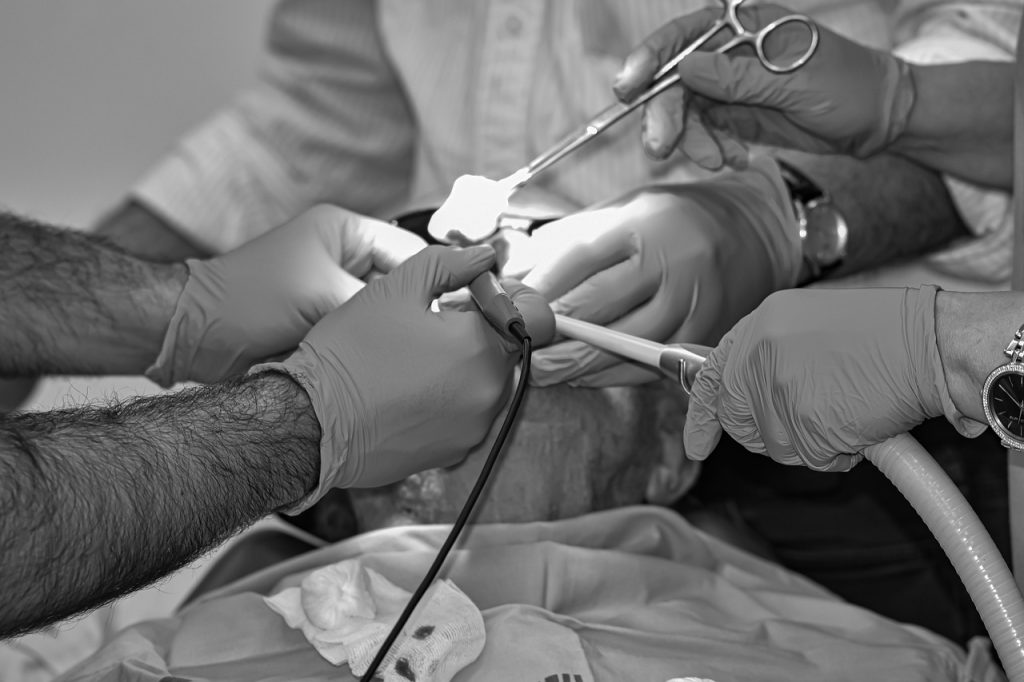
Preparing for Dental Emergencies
Maintaining Good Oral Hygiene
Maintaining good oral hygiene is an essential aspect of preparing for dental emergencies. Regular brushing, flossing, and rinsing with an antimicrobial mouthwash help prevent tooth decay, gum disease, and other dental problems that may lead to emergencies. By prioritizing oral hygiene practices, you can reduce the risk of developing dental emergencies and maintain a healthy mouth.
Wearing Appropriate Protective Gear during Physical Activities
If you engage in physical activities or sports that pose a risk of dental trauma or injury, wearing appropriate protective gear is essential. Mouthguards, helmets, and face shields can help cushion and protect your teeth and mouth during impact or accidents. Investing in high-quality protective gear and using it consistently can significantly reduce the likelihood of dental emergencies.
Avoiding Chewing on Hard Foods or Objects
Chewing on hard foods or objects, such as ice, popcorn kernels, or pens, can increase the risk of dental emergencies. These habits can lead to broken teeth, chipped teeth, or damage to existing dental restorations. By being conscious of your chewing habits and avoiding hard foods or objects, you can minimize the chances of experiencing a dental emergency.
Keeping Contact Information of an Emergency Dentist Handy
In preparation for dental emergencies, it is essential to have the contact information of an emergency dentist readily available. Keep the dentist’s phone number and address easily accessible, whether it is saved in your phone or written down in a convenient location. Having this information readily available ensures you can contact the emergency dentist promptly in case of a dental emergency.
Dealing with a Toothache or Dental Pain
Causes of Toothaches or Dental Pain
Toothaches and dental pain can have various underlying causes. Tooth decay, tooth fractures, dental abscesses, gum disease, and teeth grinding are among the common culprits contributing to dental pain. It is important to identify the cause of the toothache or dental pain to receive appropriate treatment and prevent future episodes.
Immediate Actions to Relieve Pain
In cases of toothaches or dental pain, there are immediate actions you can take to temporarily relieve the pain. Over-the-counter pain relievers, applied directly to the affected area using oral gels, can help numb the pain. Rinsing your mouth with warm saltwater can also provide temporary relief by reducing inflammation and killing bacteria. However, it is important to note that these measures are temporary and should be followed up with emergency dental care as soon as possible.
When to Seek Emergency Dental Care for Toothaches
While temporary measures can help manage toothaches or dental pain, it is crucial to seek emergency dental care if the pain is severe, persistent, or accompanied by other symptoms such as swelling, fever, or difficulty swallowing. These signs may indicate a more serious underlying dental problem that requires immediate attention. Only an emergency dentist can accurately diagnose the cause of the toothache and provide appropriate treatment to address the issue effectively.

Handling Broken or Chipped Teeth
Causes of Broken or Chipped Teeth
Broken or chipped teeth can result from accidents, falls, traumatic injuries, or biting down on hard objects. Activities such as contact sports or grinding teeth during sleep can also contribute to tooth fractures. Recognizing the causes of broken or chipped teeth can help in taking preventive measures to avoid future incidents.
Temporary Measures for Broken or Chipped Teeth
If a tooth is broken or chipped, it is important to take temporary measures to protect it and prevent further damage before seeking emergency dental treatment. Rinse your mouth with warm water to clean the area, and if there is bleeding, apply gentle pressure with a clean cloth or gauze. If possible, save any broken tooth fragments and bring them to the emergency dental appointment. Over-the-counter dental cement can be used to cover any sharp or jagged edges temporarily. However, it is essential to visit an emergency dentist as soon as possible for proper evaluation and definitive treatment.
Seeking Emergency Dental Treatment for Broken or Chipped Teeth
Emergency dental treatment is necessary when dealing with broken or chipped teeth to ensure appropriate restoration and prevent complications. An emergency dentist will examine the damaged tooth, assess the extent of the injury, and recommend the most suitable treatment option. Depending on the severity of the damage, treatment may involve dental bonding, veneers, dental crowns, or other restorative procedures. Prompt professional intervention increases the chances of preserving the natural tooth and restoring its functionality effectively.
Steps for Dealing with Knocked-Out Teeth
Immediate Actions to Increase Chances of Tooth Survival
If a tooth has been completely knocked out, immediate actions can significantly increase the chances of saving the tooth. Hold the tooth by the crown (top part), avoiding touching the root. Gently rinse the tooth with water or milk if necessary, but do not scrub or remove any attached tissue fragments. Try to reinsert the tooth into its socket, applying gentle pressure to hold it in place. If reinsertion is not possible, transport the tooth in a container of milk or saliva to keep it moist.
Transporting the Knocked-Out Tooth
Transporting the knocked-out tooth properly is crucial to preserve its viability. Avoid dry conditions, direct contact with water, extreme temperatures, and excessive handling. Placing the tooth in a container of milk or saliva helps keep it hydrated and increases the chances of successful re-implantation. It is essential to seek emergency dental treatment immediately, as time is of the essence when dealing with knocked-out teeth.
Emergency Dental Treatment for Knocked-Out Teeth
Emergency dental treatment for knocked-out teeth aims to re-implant the tooth successfully and promote its survival. An emergency dentist will carefully examine the tooth, assess the condition of the tooth socket, and clean the affected area thoroughly. Techniques such as repositioning, splinting, or root canal therapy may be employed to increase the chances of successful re-implantation. Timely intervention greatly influences the prognosis, so it is essential to seek emergency dental care as soon as possible.
Addressing Loose or Lost Dental Fillings
Potential Issues Caused by Loose or Lost Dental Fillings
When dental fillings become loose or fall out completely, it can lead to various potential issues. The exposed tooth is vulnerable to debris, bacteria, and sensitivity, and may be at a higher risk of developing decay or further damage. Additionally, the loss of a dental filling can cause discomfort and affect the tooth’s functionality, especially while chewing. Prompt action is necessary to prevent complications and achieve the appropriate restoration of the affected tooth.
Immediate Actions to Protect the Affected Tooth
If you have a loose or lost dental filling, there are immediate actions you can take to protect the affected tooth. Rinse your mouth with warm water to remove any debris or food particles. Over-the-counter temporary dental cement or dental wax can be used to cover the exposed area temporarily and provide some relief until you can seek emergency dental treatment. However, it is crucial to schedule an appointment with an emergency dentist promptly to ensure proper cleaning, disinfection, and restoration of the affected tooth.
Emergency Dental Treatment for Loose or Lost Dental Fillings
Emergency dental treatment for loose or lost dental fillings involves cleaning the affected area, removing any remaining filling material, and restoring the tooth. An emergency dentist may recommend replacing the filling or utilizing alternative restorative options such as dental crowns or onlays. The appropriate treatment plan will depend on the extent of the damage and the condition of the tooth. Seeking emergency dental care minimizes the risk of further complications and ensures the longevity and functionality of the affected tooth.
Treating Soft Tissue Injuries in the Mouth
Common Causes of Soft Tissue Injuries
Soft tissue injuries in the mouth can occur due to a variety of causes. Accidental bites, falls, sports-related injuries, or sharp objects cutting the inside of the mouth can all lead to soft tissue injuries. These injuries can vary from minor cuts or tears to more severe lacerations or damage to the gums, lips, cheeks, or tongue.
Immediate Actions to Manage Soft Tissue Injuries
When faced with soft tissue injuries in the mouth, immediate actions can assist in managing the situation until emergency dental treatment can be obtained. Rinse your mouth gently with warm saltwater to clean the injured area and reduce the risk of infection. Apply gentle pressure using clean gauze or a damp cloth to control any bleeding. If the bleeding is profuse and difficult to control, seek immediate medical attention.
Importance of Seeking Emergency Dental Treatment for Soft Tissue Injuries
Seeking emergency dental treatment for soft tissue injuries in the mouth is crucial to ensure proper cleaning, disinfection, and assessment of the injuries. An emergency dentist will carefully examine the affected area, identify any hidden damage, and provide suitable treatment to facilitate healing. Depending on the severity of the injury, treatment may involve suturing, medication to prevent infection, or other necessary interventions. Seeking prompt professional care greatly reduces the risk of complications, promotes optimal healing, and restores comfort in the affected individual.

